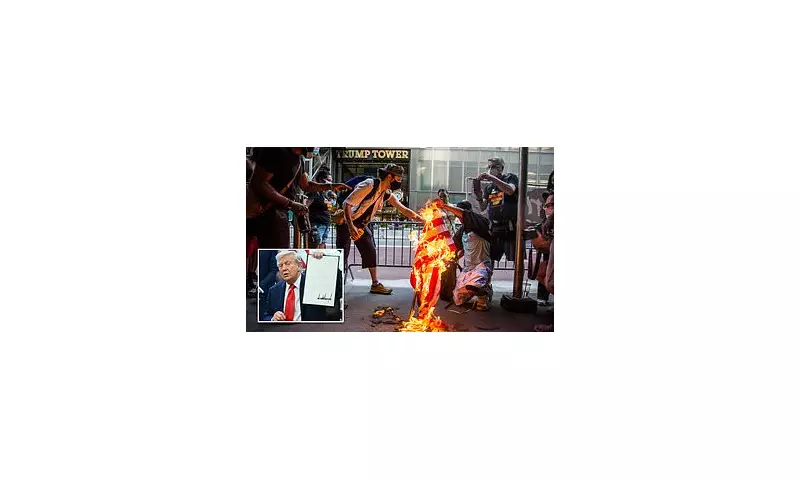
In a move that is certain to ignite fierce constitutional debate, former US President Donald Trump has declared a new front in his culture wars: a vehement crackdown on the desecration of the American flag.
Addressing a rally of fervent supporters, the 2024 presidential contender vowed to pursue one of the most extreme punishments ever proposed for the act, daring protesters to "go ahead and see what happens" if they burn the star-spangled banner under his potential future administration.
A Direct Challenge to Free Speech Precedents
The provocative pledge strikes directly at a long-standing precedent set by the US Supreme Court, which has repeatedly ruled that burning the flag is a form of political expression protected under the First Amendment. Trump's proposal would seek to overturn this fundamental protection, a move legal scholars would immediately challenge as unconstitutional.
His rhetoric echoes sentiments he has expressed before but now carries the weight of a formal campaign promise, signalling a hardline approach to national symbols and dissent.
The Proposed Punishment: Stripping Citizenship
While specific legislative details were not fully outlined, the core of Trump's proposal involves enacting a law that would mandate a year of jail time for offenders. More drastically, he raised the spectre of revoking US citizenship from those convicted—a punishment typically reserved for the most severe crimes like treason or fraudulently obtaining citizenship.
This suggestion of stripping a citizen of their fundamental rights for an act of protest is what frames the proposal as particularly extreme and has drawn immediate criticism from civil liberties groups.
Reigniting a Decades-Old National Debate
The issue of flag burning is a deeply symbolic and divisive one in American politics. Politicians have attempted to pass laws against it for generations, often using it as a rallying cry to appeal to patriotic sentiments.
Trump’s reanimation of this debate serves a clear political purpose: solidifying his base and drawing a stark contrast between his vision of 'patriotic' governance and what he labels as progressive radicalism. It frames the upcoming election not just as a political choice, but as a cultural battle for the soul of the nation.
The announcement ensures that debates over the limits of free speech, the power of national symbols, and the very meaning of patriotism will be central themes in the heated months of campaigning ahead.





